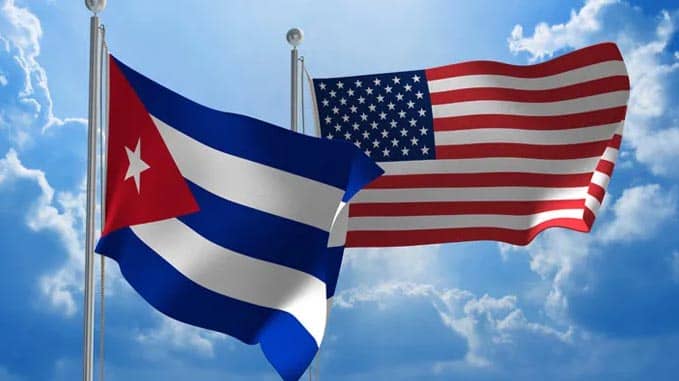
Havana, August 5.- In March 1889, a media campaign against Cuba, in the current sense of the term, took place, but it did not escalate due to the energetic, intelligent, and timely intervention of José Martí.
The Manufacturer of Philadelphia published an article full of outrage and contempt toward Cubans on March 16 of that year, and its political adversary, The Evening Post of New York, responded to the insult days later, as they fully agreed on one point: the inferiority and inability of those born on the island to govern themselves. Both texts abound in derogatory adjectives toward human beings, including “lazy”, “cowardly”, “effeminate”, and they call the Ten Years' War a “farce”, among other insults.
Both newspapers were so concerned about the "harmful influence" that Cuba could exert on the United States in the event of annexation that they declared it inadmissible, as such "inferiority" would corrupt the "superior" people of the North. Both agreed that the only possibility of union with Cuba, regardless of the territory's attractions, "[…] would be to completely americanize it, covering it with people of our own race […]." [1]
Martí’s response was immediate, written in English and published in the New York newspaper. With moderation and argumentative ability, he intended to reach the average reader, ignorant of the Cuban reality, and that his criteria reach the spheres of power.
Among the questions the Cuban must have asked himself was: what would this "Americanization" process look like? The word itself, in 1889, did not express its destructive and criminal component. A decade later, things were already being said differently.
After the war ended, when the Yankee soldiers and officers noticed that the Cubans had their own opinions, and that many realized that the United States had intervened opportunistically, waiting for the moment of greatest weakness of both contenders, began to spread the word of "ingratitude". One of the most blatant samples of these negative opinions is collected by Louis A. Pérez, Jr. in his book Cuba in the imaginary of the United States:
The Americans' reaction was at times visceral […] “The Cubans themselves were not worth a pint of good American blood spilled for their benefit”, ran the strident denunciation made by the New York Evening Post. “They [the Cubans] are obviously a bunch of wretches […] Ungrateful to the utmost degree for the condescension of the United States in coming to relieve them”. [2]
It should be noted that the quoted content was published in The Evening Post, the same newspaper, with the same editor-in-chief, Edwin L. Godkin, to whom Martí addressed his “Vindication of Cuba”; the same one, of course, who fully agreed with The Manufacturer in the offensive judgments that motivated the Cuban's response.
As the neocolonial republic began, the aggressiveness of the criteria for the “Americanization” of the island intensified. Let's return to Pérez's book, which illustrates this exemplarily:
It was very unfortunate that such a desirable place was populated by such undesirable people […] From time to time, they had genocidal fantasies to solve the Cuban people’s problem, like the one suggested by Albert Memmi, which was the logical conclusion of the imperial imagination: “imagine the colony without the colonized”. “Cuba would be desirable,” commented Nevada Senator Francis Newsland, “if for half an hour it could be sunk in the sea and then emerge when all its inhabitants had perished”. South Dakota Senator Richard Pettigrew offered a similar solution. “The island will have no value to us,” he grumbled, “unless it is sunk with its entire population”. [3]
Several notable newspapers, including The Chicago Tribune, repeatedly published similar assessments. And the wave of negative opinions even reached President Theodore Roosevelt, who during the 1906 insurrection wrote:
“I am so angry with that infernal little Cuban republic […] that I would like to wipe its people off the face of the earth”. [4]
The similarity between the circumstances of the late 19th and early 20th centuries and what is happening today in this turbulent 21st century is undeniable. The same tariff war, the same appetite for annexation from the empire and its national lackeys, the extreme intensification of racism that has reached its fascist variant, were the common denominators of that era and they are the same in ours.
Today we are faced with the same dilemma: on one side, the American people and the honest facets of that country's progressive intellectuality. On the other, the terrible forces, supporters of war, anchored in an annexationist and fascist discourse that seeks to subjugate humanity. It must be said, then, that Martí's text, conceived with Cuba in mind, can rightly be read today, with all justice, as a Vindication of Our America, or better yet, of all those peoples fighting for their sovereignty and for an ideal of peace and social justice.
In the midst of the contemporary global crisis, Martí stands as a fortress in favor of peace, dialogue, harmony, and respect among peoples. In his ideology, dignity and sovereignty will never be negotiable, and this goes beyond the limits of Cuba. When he fell in combat on May 19, 1895, he did so in a war he prepared not only to liberate his homeland, but to bring balance to the world. Let's take advantage of his legacy and make our daily lives, from our work spaces and civic activities, a struggle to achieve that goal. (Cubadebate) (Photo: Taken from the Internet)
Notes:
[1] JM. OCEC, vol. 31, p. 210. Center for Martian Studies, Havana, 2024.
[2] Louis A. Pérez, Jr. Cuba in the United States Imaginary, Editorial de Ciencias Sociales, Havana, 2016, p. 183.
[3] Ibid., p. 118.
[4] Ibid., 119.